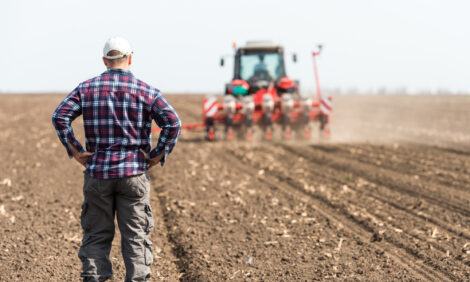



Knowledge of Animal Genomes Contributes to Food Security
NETHERLANDS - It is now possible to measure the complete DNA pattern in individual animals used for breeding purposes. This allows much more scope for breeding and selecting for favourable characteristics related to health, life duration, natural resistance and lowered environmental burden in pigs, cows and chickens, according to Wageningen University.We are therefore on the threshold of major developments that will enable us to respond to world food needs as well as to consumer demands. This was the substance of the lecture Professor Roel Veerkamp delivered on 6 September when he assumed his position as Professor (by special appointment) for Numerical Genetics and Genomics at Wageningen University, part of Wageningen UR.
The world population has grown during the last 50 years from over three billion to more than 7 billion people. At the same time, in relative terms the number of people suffering from hunger has decreased, and life expectancy has increased on a world scale. By enhancing hereditary characteristics in plants and animals, it has been possible to expand food production considerably, thereby providing more food security for the world population, Prof. Veerkamp said in his inaugural address entitled ‘Animal breeding for food security – opportunities in the genome sequencing era’. He took milk production in cows as an example; this has risen every year over the last few decades by 84 kg, 82 kg of which can be ascribed to genetic progress.
During the next 40 years, the world population will reach more than nine billion people, all of whom will also wish to consume more animal products. Producing food to meet this demand will have to be done in such a way that there is a sustainable future, with the toll on the planet remaining within acceptable limits, Veerkamp stated. This means reducing both the emission of greenhouse gases in livestock farming and the claim on land, water and fuels.
Professor Veerkamp believes the animal breeding sector could also make a very important contribution to increasing food security in the future. Being able to identify the whole genome of individual animals for breeding will help to achieve this. The genome information will allow us to breed more easily for new characteristics and to ensure that animals produce more, and that they generate less greenhouse gas, and live longer and more healthily. He also suggested that animal feed efficiency could be improved by giving more thought to other important qualities such as health and fertility.
Less feed means less claim on raw materials that need to be transported from nearby or elsewhere in the world. Furthermore, improved animal health will lead to a drastic reduction in the use of antibiotics. "The Netherlands is at the forefront of animal breeding research at an international level. By targeting the use of new genomic information we can remain at the forefront," Professor Veerkamp said.
Professor Veerkamp stated in his lecture that he and his Numerical Genetics colleagues – who specialise in statistical predictions based on comprehensive genetic information – will be able to contribute to the knowledge enhancement that is necessary for effective livestock breeding.






